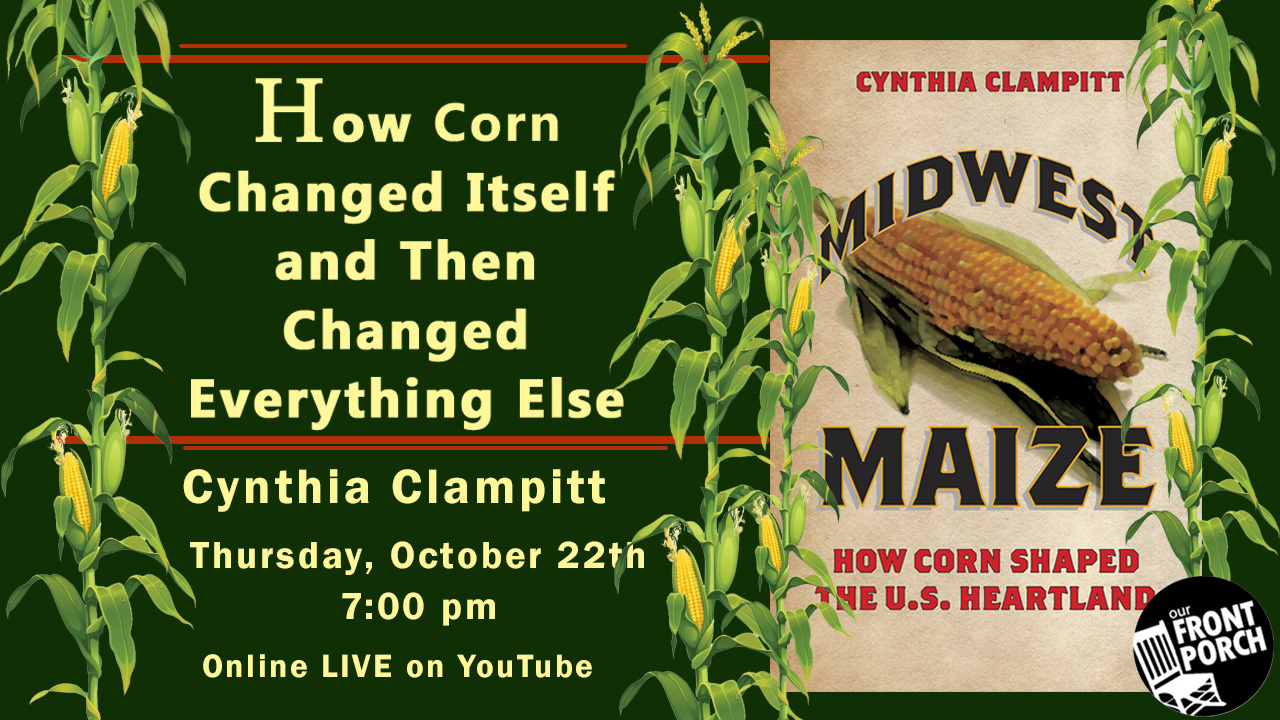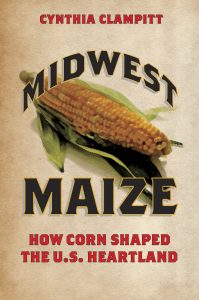
- This event has passed.
How Corn Changed Itself and Then Changed Everything Else
October 22, 2020 @ 7:00 pm - 8:30 pm

The Western Illinois Museum welcomes Illinois Humanities Road Scholar, Cynthia Clampitt for a thought-provoking program on the long history of corn. The program will take place online live on the museum’s YouTube Channel on Thursday, October 22 at 7:00 pm. A brief question and answer session will follow her presentation.
How to join us online
Click here to request a no-cost ticket to get a link to view the program live on the museum’s YouTube Channel. The program is offered at no charge, but there is a suggested $5 donation which can also be made online to cover the costs of the program.
Cynthia Clampitt will take guests on a journey starting about 10,000 years ago, to learn about a weedy grass growing in Mexico. It possessed a strange trait known as a “jumping gene” that transformed itself into a larger and more useful grass—the cereal grass that we would come to know as maize and then corn. Nurtured by Native Americans, this grain would transform the Americas even before First Contact. Soon after, it spanned the globe, but it also drove westward expansion in North America, building cities and inspiring innovators and entrepreneurs.
Vampires, whiskey, Henry Ford, time zones, Fritos, and the Chicago Bears are also part of this remarkable story. As Margaret Visser noted in Much Depends on Dinner, “Without corn, North America—and most particularly modern, technological North America—is inconceivable.” Illinois is the second-largest corn producer in the nation, and McLean County, Illinois, is the nation’s number one corn-producing county. Illinois history is corn history – yet, today, many Illinoisans have little direct experience with the sources of their food and the people who produce it. Even for those who know corn well, there is much to learn about its historic impact and why it is so vital today.
 About Cynthia Clampitt
About Cynthia Clampitt
Cynthia Clampitt is a writer and food historian. She has pursued her love of culture, history, and food in thirty-seven countries on six continents, but in recent years has focused her studies on the American Midwest. She is the author of Midwest Maize: How Corn Shaped the U.S. Heartland, published by the University of Illinois Press and Pigs, Pork, and Heartland Hogs: From Wild Boar to Baconfest, published by Rowman & Littlefield. She has written for three decades about food history and has also written more traditional history and geography for clients that include the Colonial Williamsburg Foundation and National Geographic Learning. Clampitt is a member of the Society of Women Geographers, Culinary Historians of Chicago, the Agricultural History Society, the Association of Food Journalists, the Midwestern History Association, and the history section of the International Association of Culinary Professionals.
Program Support
 Illinois Humanities is supported in part by the National Endowment for the Humanities (NEH) and the Illinois General Assembly [through the Illinois Arts Council Agency], as well as by contributions from individuals, foundations and corporations.
Illinois Humanities is supported in part by the National Endowment for the Humanities (NEH) and the Illinois General Assembly [through the Illinois Arts Council Agency], as well as by contributions from individuals, foundations and corporations.
Any views, findings, conclusions, or recommendations expressed by speakers, program participants, or audiences do not necessarily reflect those of the NEH, Illinois Humanities, our partnering organizations, or our funders.

This program is funded in part by Compeer Financial Fund for Rural America. With an office in Macomb, Compeer Financial is a member-owned, Farm Credit cooperative providing agriculture with loans, leases, risk management, and other financial services.
More information
For more information, contact the museum at 309.837.2750, text 309.837.2613, or email info@wimuseum.org.